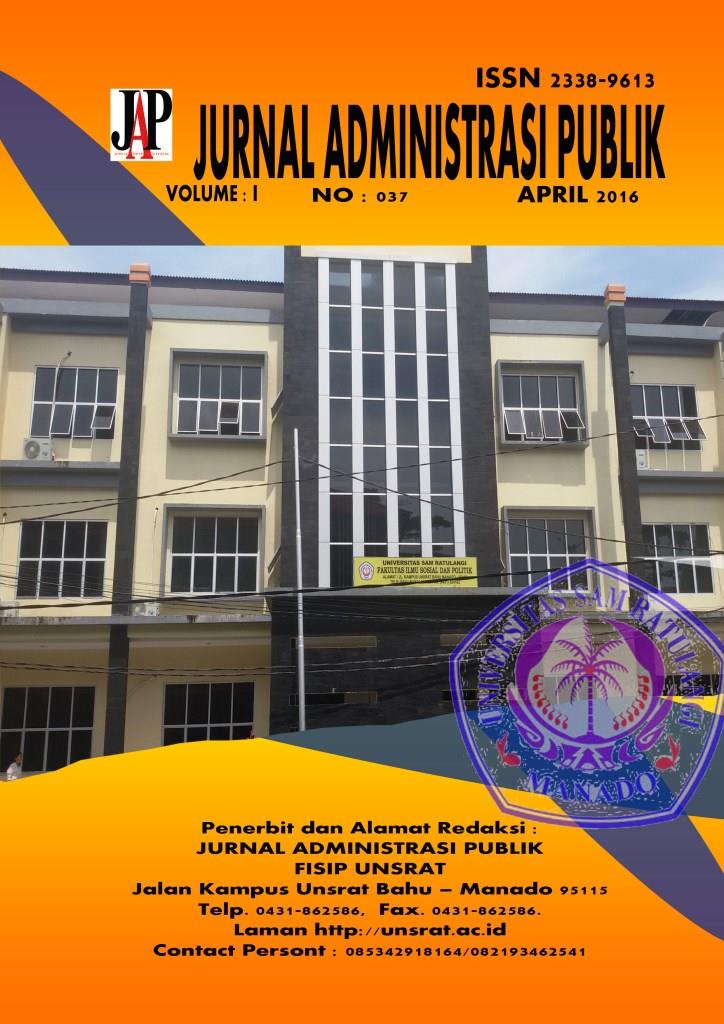Efektivitas Program Beras Sejahtera dalam Meningkatkan Kesejahteraan masyarakat Pra Sejahtera di Kecamatan Ranoyapo Kabupaten Minahasa Selatan
Abstract
ABSTRACT: Rice is a prosperous food subsidy in the form of rice earmarked for low-income households as theefforts of the government to improve food security and provide social protection to targeted households. The
success of Rice Program prosperity is measured by the level of achievement 6T indicators, namely: the right
target, the right amount, the right price, right time, right quality and right administration. The program aims to
reduce the burden of Target Households spending through the partial fulfillment of staple food needs in the
form of rice and prevent a decrease in consumption of energy and protein. The purpose of this study is to
identify the effectiveness of Rice Welfare Program in improving public welfare in the District Ranoyapo Preprosperous
South Minahasa regency.
Data collection techniques in this research is through: Observation namely direct observation to the
study site, conduct interviews and documentation. Results of the evaluation showed that the program in the
District Ranoyapo prosperous rice was not effective because there are still some things that are not appropriate
as the data receiver has not updated the program, the government is less involved mislead the public so that
people do not know clearly the price and the actual amount of rice. Likewise, there is a supplementary budget
that is charged to the public for reasons of money transport vehicles rice and supervision of the district
governments are still lacking.
Keywords: Program Effectiveness Rice Welfare, Welfare Pre prosperous society.
Downloads
Published
2016-04-17
How to Cite
Rumondor, F., Lengkong, florence D., & Palar, N. A. (2016). Efektivitas Program Beras Sejahtera dalam Meningkatkan Kesejahteraan masyarakat Pra Sejahtera di Kecamatan Ranoyapo Kabupaten Minahasa Selatan. JURNAL ADMINISTRASI PUBLIK, 1(37). Retrieved from https://ejournal.unsrat.ac.id/v3/index.php/JAP/article/view/11760
Issue
Section
Articles








